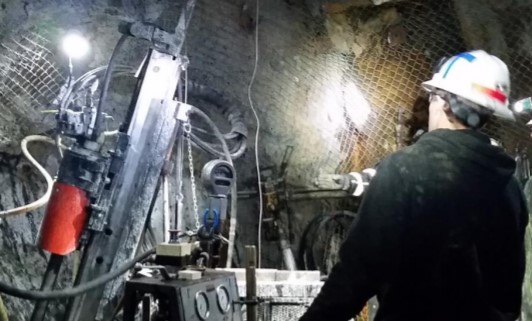Battery materials park study to include Electra, Glencore, Talon and Ontario government


Electra Battery Materials (TSXV: ELBM; OTC: ELBMF) is partnering with Glencore plc (OTC: GLCNF; London: GLEN), Talon Metals (TSX: TLO), and the Government of Ontario to create North America’s first integrated, localized and environmentally sustainable battery materials park for the electric vehicle (EV) market.
The consortium will collaborate on engineering, permitting, socio-economic and cost studies associated with the construction of a nickel sulphate refinery as well as a battery precursor cathode active materials (PCAM) plant adjacent to Electra’s cobalt refinery and recycling plant in the town of Cobalt, Ont.
“There has been insufficient scrutiny of the nickel supply chain, particularly the very high carbon footprint associated with producing battery grade nickel from nickel laterite deposits but that is starting to change,” said Electra CEO Trent Mell. “The North American alternative that we are proposing is true to the mission of zero-emission vehicles to lower global greenhouse gases.”
The study has a $700,000 budget, $500,000 of which will be contributed by Electra ($250,000) and the province ($250,000). Glencore and Talon will each contribute $100,000.
This is Ontario’s second investment in Electra. It earlier contributed $5 million toward the $84 million cost of restarting the cobalt refinery. The feasibility study for restarting the First Cobalt refinery was published in May 2020.
The location of the battery materials plant will help ensure a small carbon footprint. It will rely on hydroelectric power, and it enjoys proximity to both Glencore’s nickel smelter in Sudbury, Ont., and Talon’s Tamarack nickel-copper-cobalt project in central Minnesota. Tamarack is a joint venture with Rio Tinto (82% and the operator).
The company recently commissioned an independent commodity research company to estimate the potential carbon emissions from Electra’s proposed nickel sulphate refinery. The study determined that emissions from a Chinese nickel sulphate refinery that relies on Indonesian raw material would be up to three times higher than the same material produced in Canada by Electra’s proposed battery materials park.
The study by the new partnership also targets a much-needed North American precursor manufacturing plant. Integrated with the refinery, it, too, will enjoy a small carbon footprint. Electra is in talks with PCAM manufacturers in Europe, Japan and Korea and intends to partner with an established producer for the last piece of a domestic battery materials park.
Electra has outlined a phased approach to create the park. First is the refinery (2022), then the solvent extraction plant (2023) for recycling black mass from batteries (2023), and in mid-decade a battery grade nickel sulphate refinery and the PCAM plant.
Electra’s business strategy is to produce sufficient battery material to supply 1.5 million EV batteries on an annual basis.
More information and news are posted at www.ElectraBMC.com.
Comments